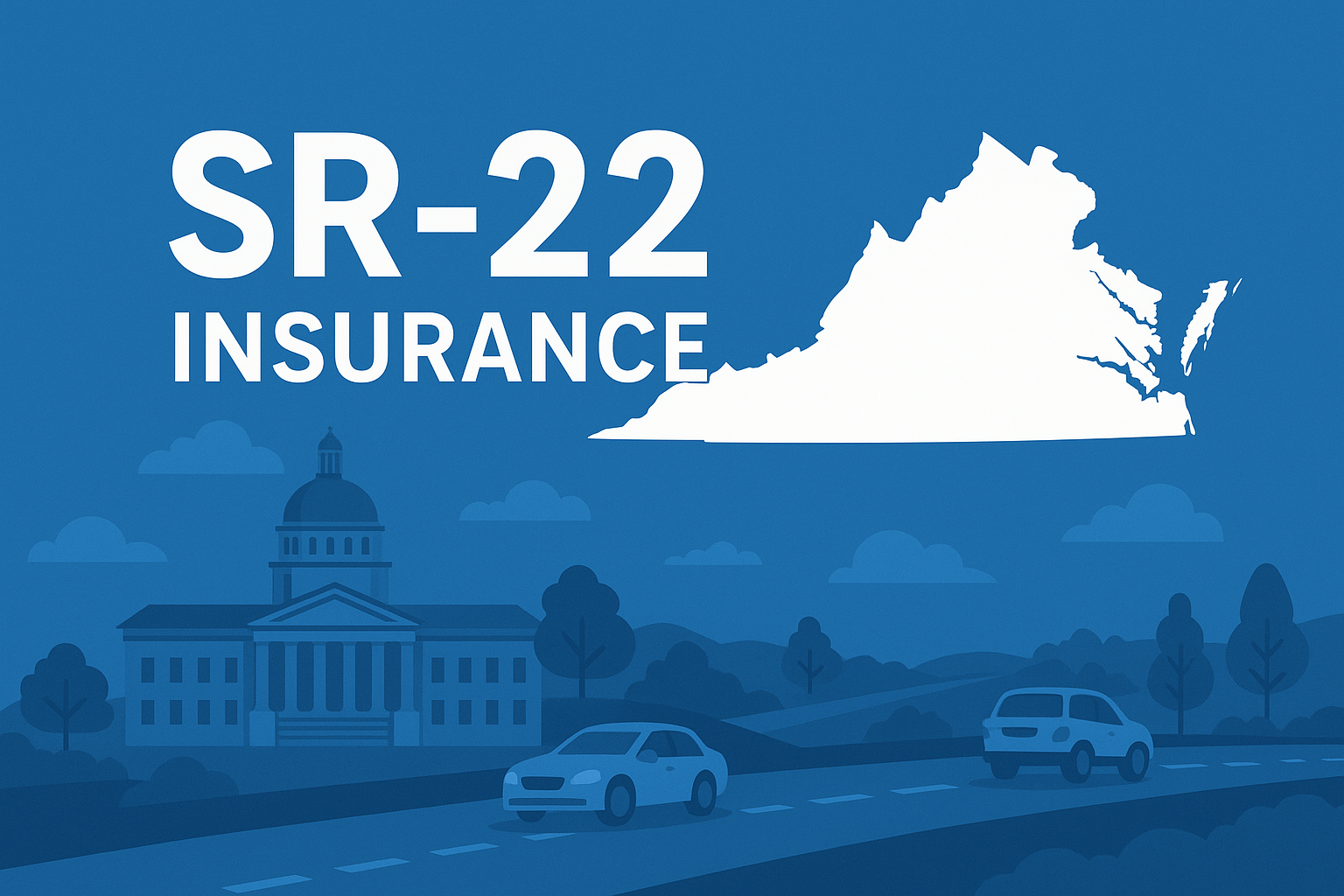SR-22 Insurance in Virginia
Fast filings, fair rates, and straight talk from a veteran-owned independent agency.
More importantly, we handle the SR-22 filing end-to-end
so you can get back on the road without delay.

What is an SR-22 in Virginia?
First, SR-22 isn’t insurance—it’s a certificate your insurer files with the Virginia DMV to prove you carry at least the required liability limits. In practice, DMV requires SR-22 after insurance noncompliance or certain suspensions/reinstatements. If your policy lapses, your insurer must notify DMV, and as a result your driving privilege can be suspended.
Why choose Foxx Insurance?
- Same-day electronic filings with DMV
- Multiple carriers to keep rates competitive
- Non-owner policies available statewide
How the SR-22 filing works
To make it simple, here’s how the process works from quote to filing.
- Get a quote — We place you with an eligible policy that meets Virginia requirements. Get your quote.
- We file the SR-22 — Your insurer files it directly with DMV; you don’t file it yourself.
- Stay covered — Keep continuous coverage for the required period. A lapse can suspend your license and may restart the clock.
How long do you need SR-22 in Virginia?
Typically, drivers must maintain SR-22 for about three years after insurance noncompliance or certain suspensions. Meanwhile, DMV guidance commonly requires SR-22 for three years to clear an insurance noncompliance order. Therefore, always follow the dates on your DMV or court notice.
SR-22 vs. FR-44 in Virginia
Here’s the key difference: FR-44 is generally required after alcohol- or drug-related offenses and mandates higher liability limits—in fact, those limits are double the SR-22 minimums under Virginia guidance. Practically speaking, SR-22 covers many other reinstatement scenarios. See our FR-44 page for details.
Virginia DMV fees & options
For clarity, Virginia lists several fees tied to reinstatements and noncompliance. For example, insurance noncompliance can require a $600 statutory fee plus SR-22 for three years; reinstatement fees vary by case, and DMV offers online payment and a payment-plan program in some situations.
Paying a fee alone does not reinstate driving privileges—other conditions (e.g., SR-22 on file, clearing other orders) must be satisfied.
No car? You can still file.
If you don’t own a vehicle, you can still meet the requirement—in fact, a non-owner SR-22 policy often keeps costs lower while satisfying Virginia’s proof rules. Start a non-owner quote.

FAQ
Do I file the SR-22 myself?
No—here’s why: after you buy an eligible policy, your insurer files it electronically with DMV and maintains it on record. If your policy cancels, DMV is notified.
Can I switch insurers during my SR-22 period?
Yes; however, make sure the new policy files an SR-22 before the old one cancels to avoid a lapse.
What happens if my SR-22 or policy lapses?
In that case, DMV can suspend your driving privilege and the required period may restart. Contact us immediately to avoid gaps.
Is SR-22 the same as “high-risk insurance”?
Not exactly—technically, SR-22 is the filing that proves you have liability coverage. Some carriers rate SR-22 drivers as higher-risk, which can affect price—so we shop multiple companies.
